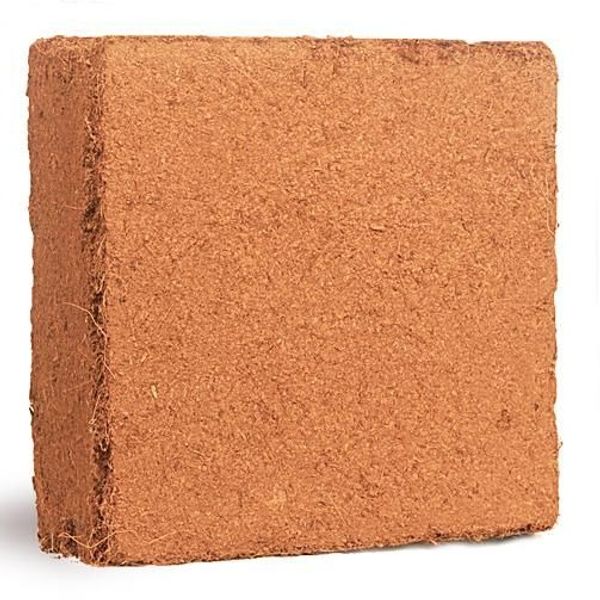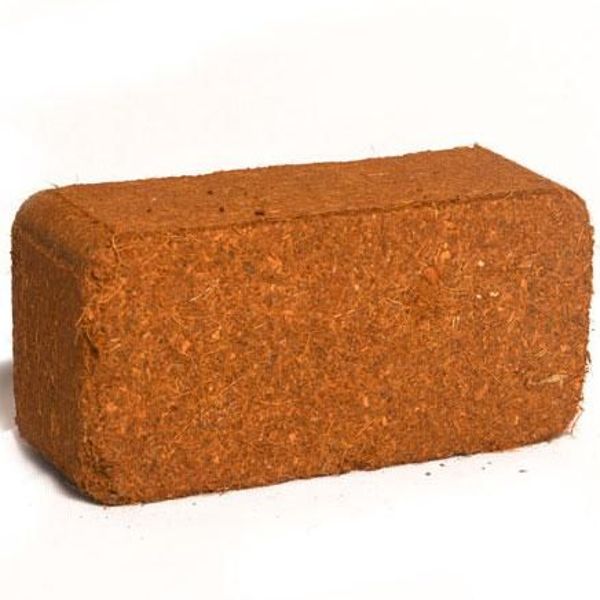상품


Coco Peat (Coir Pith)
Coco peat, also known as coir pith, is a natural, lightweight, and spongy growing medium derived from the fibrous husk of coconuts. It is valued globally as a sustainable and eco-friendly alternative to peat moss, as it is a renewable resource created from a byproduct of the coconut industry. The material is thoroughly washed, dried, screened, and compressed for cost-effective export. It is 100% organic and eco friendly, free from soil borne pathogen and weed.
Key features:
High water retention: Can absorb and hold water up to eight times its weight, reducing the frequency of irrigation.
Excellent aeration: Maintains a loose, airy texture that prevents soil compaction and promotes healthier, more robust root development.
pH neutrality: The pH level is typically neutral (5.5–6.8), making it suitable for a wide variety of plants and balancing acidic or alkaline soil.
Eco-friendly: A sustainable, biodegradable, and renewable resource that helps reduce agricultural waste.
Weed and pathogen-free: The processing and heat treatment ensure the product is free from weeds, harmful pathogens, and soil-borne diseases.
Product varieties:
To cater to diverse market needs, coco peat is exported in several formats:
Coco peat blocks: Highly compressed blocks (commonly 5kg) that expand significantly when hydrated, making them cost-effective for large-scale farming, nurseries, and soil conditioning.
Coco peat briquettes: Smaller, user-friendly blocks (e.g., 650g or 1kg) designed for home gardeners, hobbyists, and retail markets.
Coco peat grow bags: UV-stabilized bags pre-filled with a mix of coco peat and chips, ready for planting. They are widely used in commercial greenhouses and hydroponic farming.
Buffered coco peat: A treated version with reduced sodium and potassium levels, ideal for sensitive plants and hydroponic systems.
Coco chips: Larger, irregular pieces of coconut husk that can be mixed with finer coco peat to enhance drainage and aeration, especially for plants like orchids.
Loose coco peat: Bulk, uncompressed coco peat supplied in large bags or bales for industrial-scale use, landscaping, or composting.
Coco peat discs and plugs: Small, compressed discs or pellets used for seed germination trays and propagation, as they minimize transplant shock.
Coco peat tablets: Coco peat tablets, also known as coins or plugs, are compressed discs of coconut coir that expand into a lightweight, fluffy growing medium when hydrated with water.
Coco peat compost: Cocopeat compost is a sustainable, nutrient-rich growing medium derived from coconut husk waste, known for its excellent water retention, soil aeration, and nutrient availability, making it an ideal alternative to peat moss for organic farming and gardening.
Applications:
Horticulture and agriculture: Serves as a versatile growing medium for a wide range of vegetables, fruits (including tomatoes, strawberries, and peppers), flowers, and other plants.
Hydroponics and vertical farming: An essential, sterile substrate for controlled environment agriculture and water-efficient systems.
Nurseries and greenhouses: Provides optimal conditions for seed starting, propagation, and potted plants.
Landscaping: Used as a soil amendment to improve water retention and as a mulch to control weeds and prevent erosion.
Industrial absorbents: Can be used for absorbing oil and other liquid spills.
Animal bedding: An absorbent, natural, and comfortable bedding material for pets and livestock
Key features:
High water retention: Can absorb and hold water up to eight times its weight, reducing the frequency of irrigation.
Excellent aeration: Maintains a loose, airy texture that prevents soil compaction and promotes healthier, more robust root development.
pH neutrality: The pH level is typically neutral (5.5–6.8), making it suitable for a wide variety of plants and balancing acidic or alkaline soil.
Eco-friendly: A sustainable, biodegradable, and renewable resource that helps reduce agricultural waste.
Weed and pathogen-free: The processing and heat treatment ensure the product is free from weeds, harmful pathogens, and soil-borne diseases.
Product varieties:
To cater to diverse market needs, coco peat is exported in several formats:
Coco peat blocks: Highly compressed blocks (commonly 5kg) that expand significantly when hydrated, making them cost-effective for large-scale farming, nurseries, and soil conditioning.
Coco peat briquettes: Smaller, user-friendly blocks (e.g., 650g or 1kg) designed for home gardeners, hobbyists, and retail markets.
Coco peat grow bags: UV-stabilized bags pre-filled with a mix of coco peat and chips, ready for planting. They are widely used in commercial greenhouses and hydroponic farming.
Buffered coco peat: A treated version with reduced sodium and potassium levels, ideal for sensitive plants and hydroponic systems.
Coco chips: Larger, irregular pieces of coconut husk that can be mixed with finer coco peat to enhance drainage and aeration, especially for plants like orchids.
Loose coco peat: Bulk, uncompressed coco peat supplied in large bags or bales for industrial-scale use, landscaping, or composting.
Coco peat discs and plugs: Small, compressed discs or pellets used for seed germination trays and propagation, as they minimize transplant shock.
Coco peat tablets: Coco peat tablets, also known as coins or plugs, are compressed discs of coconut coir that expand into a lightweight, fluffy growing medium when hydrated with water.
Coco peat compost: Cocopeat compost is a sustainable, nutrient-rich growing medium derived from coconut husk waste, known for its excellent water retention, soil aeration, and nutrient availability, making it an ideal alternative to peat moss for organic farming and gardening.
Applications:
Horticulture and agriculture: Serves as a versatile growing medium for a wide range of vegetables, fruits (including tomatoes, strawberries, and peppers), flowers, and other plants.
Hydroponics and vertical farming: An essential, sterile substrate for controlled environment agriculture and water-efficient systems.
Nurseries and greenhouses: Provides optimal conditions for seed starting, propagation, and potted plants.
Landscaping: Used as a soil amendment to improve water retention and as a mulch to control weeds and prevent erosion.
Industrial absorbents: Can be used for absorbing oil and other liquid spills.
Animal bedding: An absorbent, natural, and comfortable bedding material for pets and livestock
Organic
PP Bags
Pellet, Expeller, Husk
원산지
인도
생산량
30 /
+ 1
추천 판매자
'쿠키 허용'을 클릭하면 통계 및 개인 선호도 산출을 위한 쿠키 제공에 동의하게 됩니다.
개인정보 보호정책에서 쿠키에 대한 자세한 내용을 확인할 수 있습니다.
